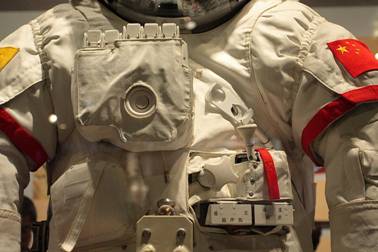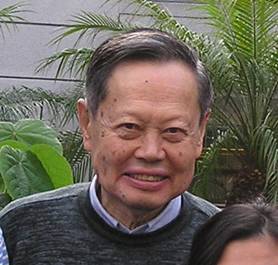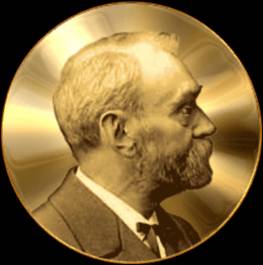Despite having the world’s biggest population and rigorous nationwide scientific education curriculums, China has faired badly in the scientific Nobel Prize contests. Although Chinese-born and educated scientists have won the prize, none of them were Chinese nationals at the time. In other categories, China hasn’t faired any better. Gao Xingjian won the prize for literature in 2000, but he was a French émigré and his work has been widely banned and denounced on the mainland. Ironically, the only peace prize to be won in Chinese borders (depending of course on whose borders we’re talking about) was awarded to the jackal himself, the Dalai Lama. How can such a large country with such an aggressive emphasis on education, the third country in history to successfully complete a spacewalk, continue to come up empty? And why do the president of Sweden’s Royal Institute of Technology and three Nobel committee members predict that a female scientist, “will most likely claim China’s first Nobel Prize in a scientific field, and that the first Nobel Prize awarded to a Chinese will likely come in either the literature or peace categories,” and not physics, chemistry, medicine, or economics?

Photo: Johnson Lau
To be fair, it’s not just China having trouble winning a Nobel. The Arab world has only been home to a small handful of Nobel winners. There are differing reactions to these numbers. Some say the problem lies with the Nobel committee itself. Comprised of a small number of Europeans, the Nobel committee is not able to assess literary or scientific contributions unless they’ve been translated into English, or a small number of European languages. So, of all the Arabic and Chinese literature produced, only those books which have been translated into one of those languages are truly in competition for judging.
Another argument is that the education systems in China and some Arabic countries emphasize rote learning over creativity and innovation. “The Chinese make great achievements in areas that need the effort of the whole country, such as aerospace, sports, and engineering,” writes Ma Wenluo on ChinaStakes, ”but don’t do very well in areas that require innovative individual qualities.” The criteria for the Nobel Prize, and many other scientific awards, is not “what has been learned but what has been created.” A controversial article on Plancks Constant points out, “More Americans in Utah have patents in this year alone then all of the Islamic countries for the past 200 years.”
Regarding China’s bid for a science-related Nobel Prize, there is another reason which may explain why China has lagged behind. Many of the inventions that are now winning prizes were researched in the ‘70s and ‘80s – from ’66 to ’76 most of China’s universities were closed and higher education ground to a halt which made it difficult for today’s crop of Chinese scientists to accrue the, “20 to 25 years of scientific research experience,” necessary to be considered for the prize. However, all the scientists born on the mainland received at least one degree in China. Yang Zhenning received the prize at the age of 35 with Li Zhengdao. Yang received a Bachelors of Science from Kunming National Southwest Associated University and did a masters at Tsinghua before continuing to America to get a PhD and serve as Enrico Fermi’s assistant.

Dr. Yang Zhenning, first person of Chinese descent to win a Nobel Prize
Politics plays a role in the Nobel process beyond language difficulties. Chinese universities have been encouraging students to flood journals with papers in a strategy that has been compared to the Olympic gold strategy – targeting weak spots and attacking them with overwhelming resources, “over the past decade Chinese scientific articles have increased 18 percent per year.” However, many of the papers submitted to journals have been considered to be unworthy of even consideration for publication and the onslaught is starting to annoy the editors of the journals.
China’s Nobel situation differs greatly depending on which vantage you’re looking at it from. Although the CCP sees Tibet as part of China, the Dalai Lama will never be acknowledged on the mainland as ‘Chinese’ winner of the prize. Same for Gao Xingjian, whose books are banned on the mainland and who has lived in exile in France for 20 years. Foreigners may have seen the pick of jailed human rights activist Gao Zhisheng as a Chinese pick, but the Chinese government threatened that awarding the prize to the jailed lawyer would, “severely strain relations between China and the West.” Julia Lovell writes about these political and ideological conflicts and their potential repercussions for China in her book “The Politics of Cultural Capital: China’s Quest for a Nobel Prize in Literature”

Photo: Alfred Nobel
This phenomenon is paralleled in Arab countries as well – of the 5 Arabs who have won Nobel Prizes for science, “3 are Christian, and the other two, though Muslim, are Arab-Americans,” and the prize is sometimes viewed with distrust. Iraqi researcher Samir Ubeid: “Why has the prize been awarded to 167 Jews and only 4 Arabs,” even worse, “only four out of 380 million Arab—and all four are traitors.”
Although perhaps less overt, China also has a complicated relationship with the Nobel prize. Despite sometimes framing it as a political award controlled by biased western judges, China also seeks it as a validation that it has become an innovative nation that can challenge the west not only in manufacturing might, but in the labs and arts as well. How China fares in this new attempt will be illustrative as to how well the government understands soft power and how much they have mastered nuances and gained the ability to wield it on the international stage.
***
Related Links
Sounds of Science: China's Drive to Become a Scientific Superpower
Will Obama meet with China's nemesis, Dalai Lama?
Focuses on China: Interview with Director Bates Gill of Stockholm International Peace Research Institute
Warning:The use of any news and articles published on eChinacities.com without written permission from eChinacities.com constitutes copyright infringement, and legal action can be taken.
All comments are subject to moderation by eChinacities.com staff. Because we wish to encourage healthy and productive dialogue we ask that all comments remain polite, free of profanity or name calling, and relevant to the original post and subsequent discussion. Comments will not be deleted because of the viewpoints they express, only if the mode of expression itself is inappropriate.
Please login to add a comment. Click here to login immediately.